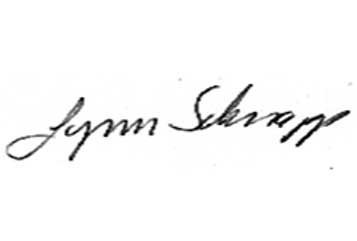CHEST supports expanded coverage for lung cancer screenings
June 17, 2021
In response to the proposed National Coverage Analysis for Screening for Lung Cancer with Low Dose Computed Tomography (LDCT), CHEST and the American Thoracic Society (ATS) provided comments to the Centers for Medicaid and Medicare Services (CMS) for more inclusive coverage of lung cancer screening.
The submitted comments focus on:
- Expanding the screening age and pack-year limits
- Supporting the shared decision-making (SDM) requirement
- Allowing telehealth for the SDM process
Read the full response below.
6/17/2021
Joint Comments of the ATS and CHEST on NCD for Lung Cancer Screening
As leadership of the American Thoracic Society (ATS) and the American College of Chest Physicians (CHEST), we urge the Centers for Medicaid and Medicare Services to update their coverage policy for lung cancer screening to implement the recent recommendations adopted by the U.S. Preventative Services Taskforce. Adopting the USPSTF lung cancer screening recommendations is supported by the available evidence, the current and in-press CHEST lung cancer screening guidelines and will help improve the lives and health of Medicare beneficiaries.
Expanding Screen Age and Pack Year Limits
The ATS and CHEST strongly support the USPSTF recommendations to expand the age and pack-year limits and we urge CMS to adopt the USPSTF recommendations in CMS lung cancer screening policy. Available evidence supports expanding the age band eligibility from 55 years old to 50 years old and decreasing the smoking criteria from 30 to 20 pack-years, respectively. We strongly support these new eligibility criteria as it is likely to detect more cancers in at-risk populations, especially African Americans and women, who develop lung cancer at an earlier age and with less pack-year history. It is also notable that when cancer is diagnosed in African Americans the outcomes are worse, and so improving early detection with screening has potential for substantial benefit. Thus, we believe that this change will contribute to a reduction in disparities in both early diagnosis and outcome among those disproportionally impacted by lung cancer.
We note that in its NCD request, the Society for Thoracic Surgery (STS) recommended eliminating the upper end age limit for lung cancer screening and elimination of the quit within 15 pack years requirement. While we understand the importance of increasing early detection rates through increased screening of at-risk individuals and thus, the spirit of these recommendations, we recommend CMS adopt the USPSTF lung cancer screening age and pack-year recommendations.
Shared Decision-Making Requirement
ATS and CHEST recommend retaining the Shared Decision Making (SDM) requirement. We note the concerns with SDM articulated by STS in the NCD request. We believe the SDM is essential to educating patients regarding the potential health risks of tobacco use, the risks and benefits of lung cancer screening, and ensuing medical decisions that may arise from lung cancer screening findings.
In its NCD request, STS correctly notes that mammography and colonoscopy screening do not require a SDM, however, we believe the relatively low literacy regarding lung cancer screening, universal acceptance, and uptake currently justify the requirement for SDM. This is of particular importance within populations that are disproportionally impacted by lung cancer. We agree that additional strategies to ensure that SDM is conducted efficiently and understandably for all should be pursued. While we continue to support the SDM requirement, we note that the COVID-related expansion of telehealth services has demonstrated that remote services, including SDM, can be safely and effectively provided via telehealth. We encourage CMS to consider updating coverage policy to allow for telehealth provision of required SDM visits.
Independent Diagnostic Testing Facilities
We understand that lack of access remains a significant obstacle in lung cancer screening within many communities. Thus, we are supportive of strategies to increase access to screening facilities and ensuring reimbursement to those facilities. We would like to emphasize that diagnostic testing represents only one component of the screening process which spans from efforts targeted at improving individual and community level education regarding risks and benefits, effective SDM, management of lung findings requiring timely and efficient evaluation to strategies addressing actionable incidental findings. Thus, testing should be conducted as part of a comprehensive approach that ensures that all components of screening are also available. Secondly, both testing and results reporting should meet standards outlined by national organizations and incorporate accepted criteria for reporting.
The ATS and CHEST appreciate the opportunity to comment. We encourage CMS to update the Medicare lung cancer screening coverage policy to ensure appropriate access to this lifesaving screening service.
Sincerely,

Lynn Schnapp MD, ATSF
President
American Thoracic Society

Steven Q. Simpson MD, FCCP
President
CHEST